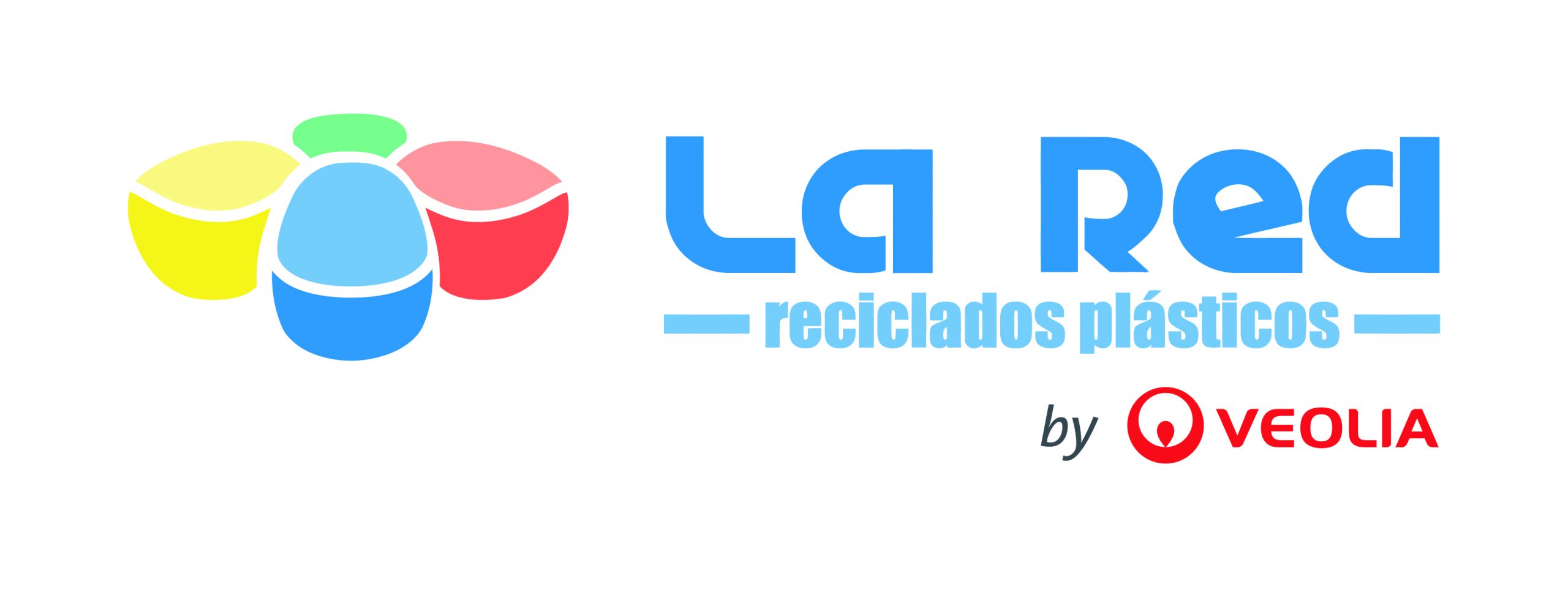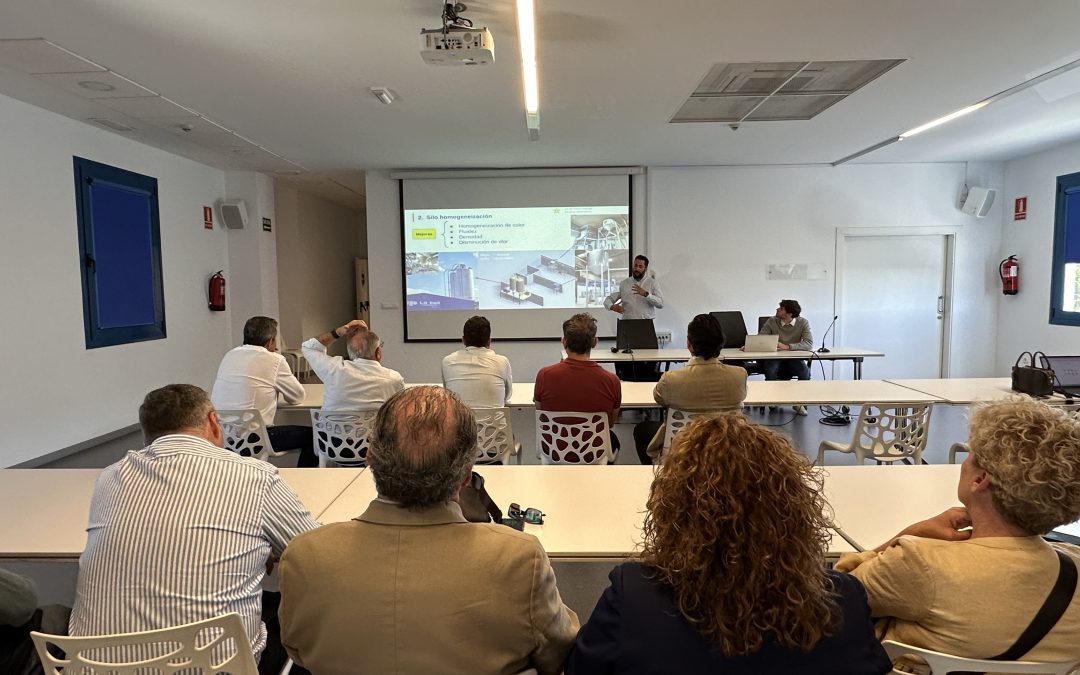
by webmasterMT | May 27, 2025 | Circular Economy, Environment, Innovation, recycled material, Recycling, Sustainability
Innovation and Transparency in the LDPE Recycling Industry
At Reciclados La Red by Veolia, innovation and transparency go hand in hand. We recently held an Open Day focused on LDPE quality improvements, giving clients and partners the opportunity to gain detailed insight into our advancements in plastic recycling.
Looking for examples of industrial sustainability? This event highlighted the potential of new technologies applied to LDPE recycling.
Why Hold an Open Day in LDPE Recycling?
Efficient plastic recycling is a global priority. Organizing these open days allows our clients to see, first-hand, how investments and technical upgrades transform production processes.
Importance for Clients and the Industrial Sector
Trust is built through transparency. We invited our clients to discover step-by-step how we manage LDPE and how our recent investments have improved product quality.
Boosting the Circular Economy in Spain
These initiatives reinforce our commitment to the circular economy and to sustainability in Spain’s plastic recycling industry.
LDPE Quality Improvements: The Key to Advanced Recycling
During our presentation, we detailed the advances incorporated into our LDPE recycling processes.
New Post-Industrial LDPE Sorting Plant
- Precise separation of contaminants and colored film.
- Dramatic reduction in black spots.
- Greater cleanliness and product uniformity.
Homogenizer Silo and Parameter Controls
- Total homogenization of color, flow, and density.
- Odor reduction.
- Transition from manual to automatic operation by June 2025.
Innovative Washing Water Separation System
- Dual-circuit: clean and waste water.
- Improved filtering efficiency and reduced environmental footprint.
- New dedicated water treatment plant operational by the end of May.
Tour of Our Facilities: Total Transparency in LDPE Recycling
Participants enjoyed an immersive experience at our La Red Hacienda Dolores, La Red Central, and Ecores plants.
La Red Hacienda Dolores: Innovation in Action
Here, we offered a practical demonstration of technical advances in LDPE sorting and processing.
La Red Central and Ecores: Process Optimization
Here, we showcased improvements in operational efficiency and technological integration to deliver consistently high-quality recycled products.
Results of Quality Improvements in LDPE Recycling
The benefits of these investments are already being seen by our clients.
Benefits for Clients: Homogeneous and Reliable Products
- Fewer incidents and defects.
- Consistent quality from batch to batch.
- Reduction in contamination and cross-batch issues.
Reduced Defects and Greater Traceability
- Implementation of advanced traceability systems.
- Use of technology aligned with European standards.
Our Commitment: A Sustainable Future and Ongoing Improvements
We are already working on new projects to further enhance the efficiency, sustainability, and quality of LDPE recycling. Our 2025 vision includes digitalization of controls, reduced energy consumption, and new sorting lines.
Photo Gallery: The Day in Images
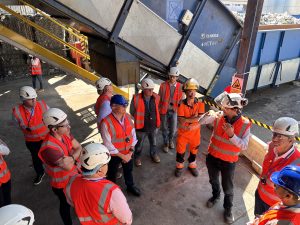
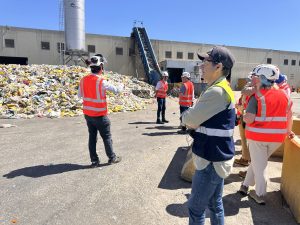
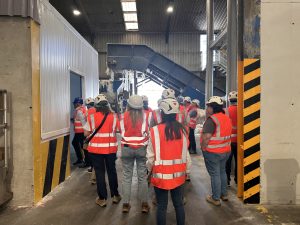
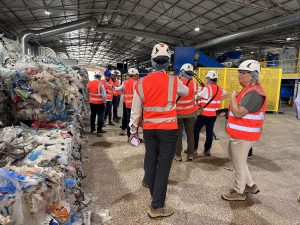
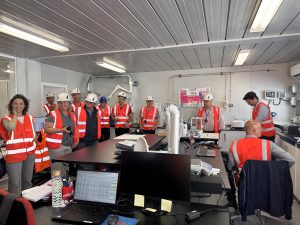
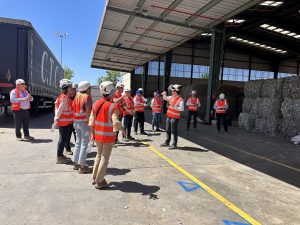
Conclusion: Transparency in Plastic Recycling Drives Trust
Showcasing our improvements and opening our doors to clients strengthens trust, generates new opportunities, and helps build a robust circular economy in Spain.
To learn more, contact us or visit our product and sustainability pages.
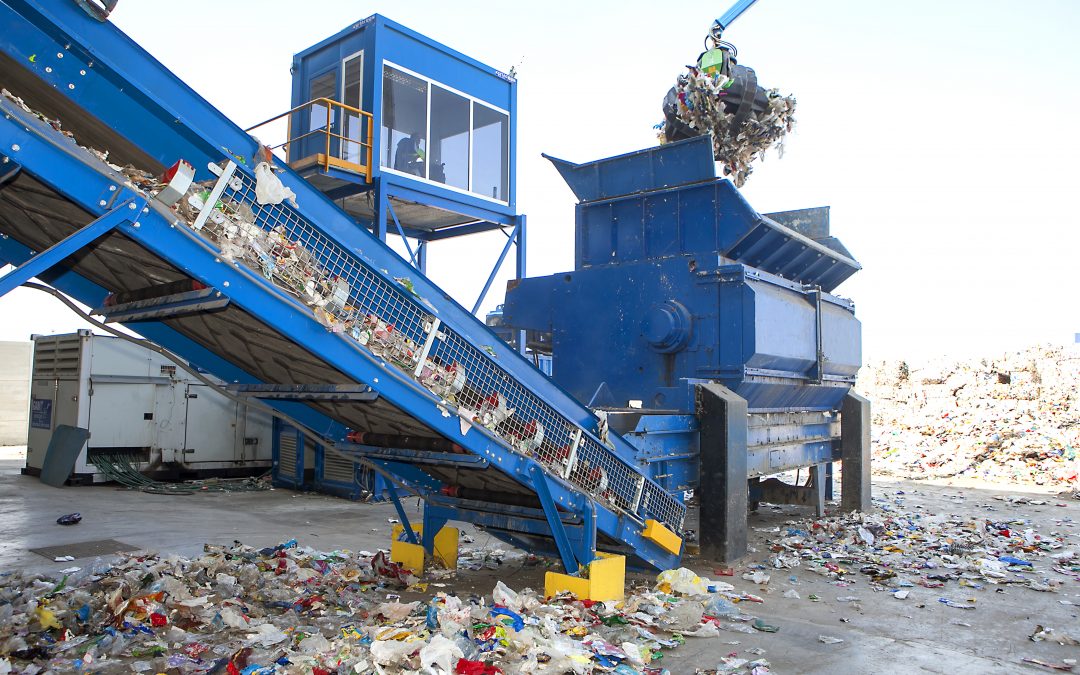
by webmasterMT | May 19, 2025 | Circular Economy, Environment, Innovation, recycled material, Recycling, Sustainability
May 17 is a marked date on the environmental calendar: World Recycling Day. This day seeks to reflect on our consumption habits and waste management, especially plastic, one of the most prevalent and controversial materials of our time.
From Recycled La Red by Veolia, we want to show you why plastic recycling is essential to achieve an efficient and responsible circular economy. Why do we celebrate World Recycling Day?
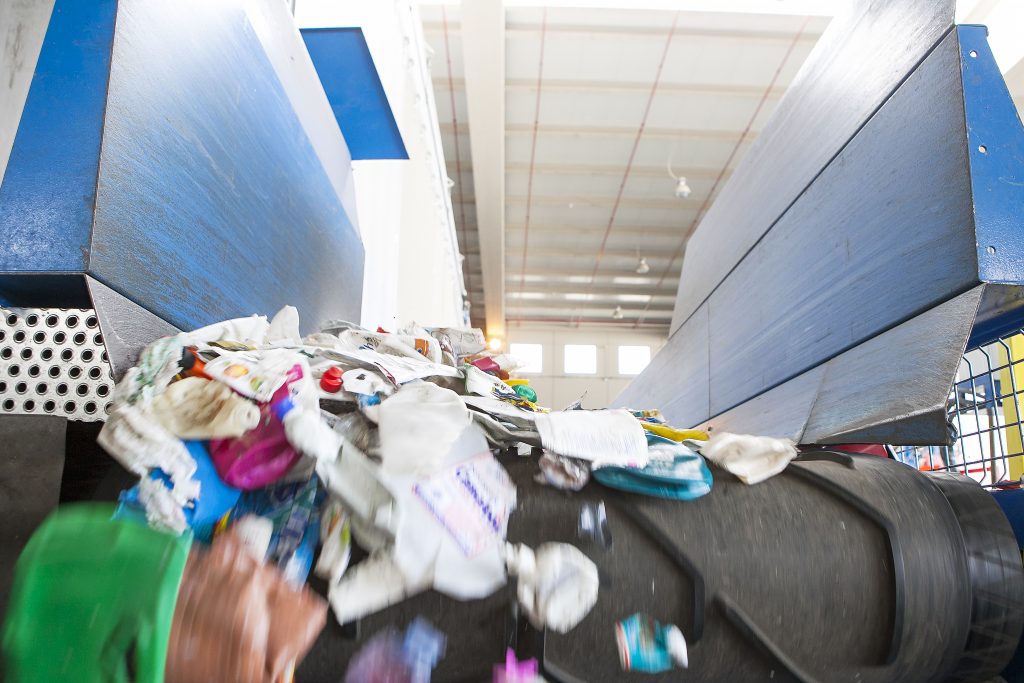
Origin and objectives of World Recycling Day
This event, promoted by UNESCO, seeks to raise awareness of the importance of reusing and recycling materials to reduce pressure on natural resources.
Global importance of plastic recycling
Recycling directly contributes to waste and CO2 emission reduction. Recycled plastic prevents tons of waste from ending up in landfills and oceans every year.
The impact of plastic recycling on the circular economy
Environmental advantages of recycled plastic
The use of recycled plastic in products and packaging reduces oil extraction, saves energy and significantly decreases the carbon footprint.
Resource saving and waste reduction
Each team and machine at Recycled La Red by Veolia aims to transform waste into raw material, which promotes circularity and protects ecosystems.
Data from PlasticEurope shows that in Europe, more and more companies are taking advantage of recycled plastic, surpassing 5 million tons reused annually (source: https://plasticseurope.org).
Recycled La Red by Veolia: Our work in plastic recycling
Recycling process at our plant in Spain
At our facilities, we collect, classify and treat plastic waste according to the strictest European standards. We convert post-consumer and post-industrial waste into high-quality recycled plastic, ready to be transformed into new products.
Benefits of recycled plastic for businesses and consumers
Recycled plastic is a valid and sustainable alternative, ideal for sectors such as packaging, automotive or construction. It provides clear economic and environmental benefits.
How you can contribute to plastic recycling
Practical tips to improve recycling at home and in the office
- Separate the types of plastics correctly in the yellow containers.
- Reduce the consumption of single-use plastics.
- Find out about the clean points in your city.
- The importance of separation and selective collection
- Correct separation facilitates recycling, increasing the quality of the recovered materials and avoiding rejections. Learn to read labels well and follow local informative campaigns.

The future of recycled plastic in Spain and the world
Innovations and trends in plastic recycling
The implementation of new technologies or the new advanced recycled resins progress in efficiency and purity, opening new applications for recycled plastic.
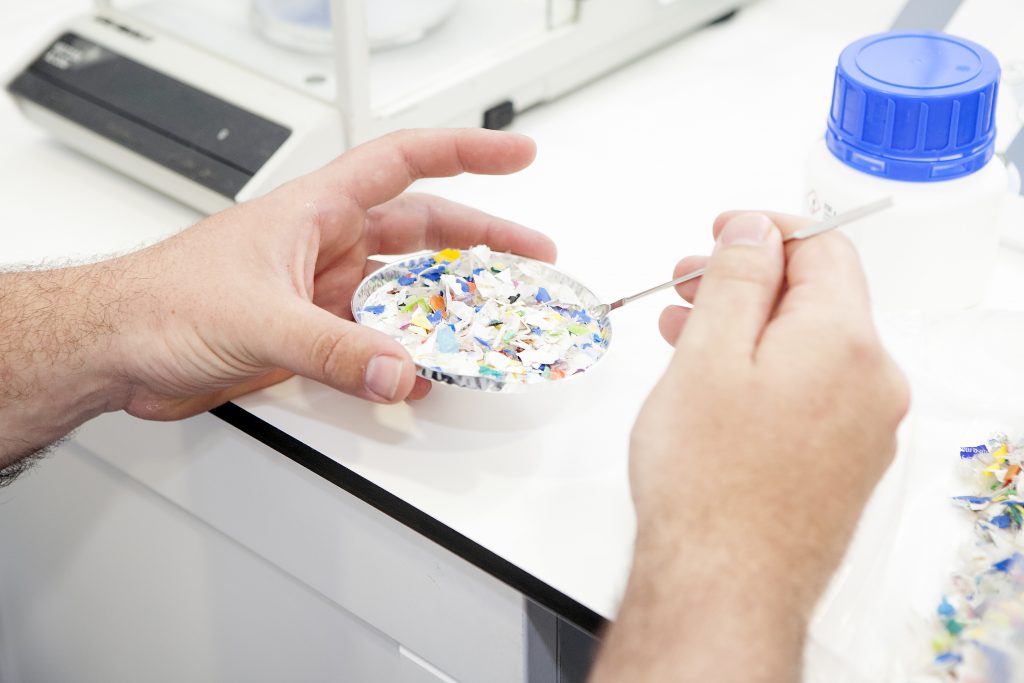
Institutional support and new European regulations
The European Union promotes regulatory frameworks such as the European Plastic Strategy, demanding higher recycling rates and the design of more sustainable packaging (source: https://europa.eu).
In Spain, the National Integrated Waste Plan strengthens the recycling chain from collection to the eco-design of new products.
Do you want to boost plastic recycling? Visit our website and find out how we can help you take the next step towards sustainability.
Plastic recycling is a real opportunity to transform waste into resources. Our environmental commitment is realized day by day, driving the change towards a cleaner and more prosperous planet for everyone.

by webmasterMT | Mar 6, 2025 | Environment, Innovation, Sustainability
Efficient plastic waste management is crucial to mitigating climate change. At Reciclados La Red by Veolia, we have adopted advanced sorting to optimize recycling and reduce environmental impact. Visit our recycling process here.
What is Advanced Sorting?
Advanced classification is a process that separates plastics by polymer type. By separating plastics by polymer type, recycling quality is improved, as each type of plastic can be optimally processed for reuse in the manufacture of new products. This is crucial for obtaining high-quality recycled materials and for reducing the environmental impact of recycling, and CO₂ emissions.
Benefits of Advanced Sorting
- Recycled Material Quality: Allows for high-purity plastics, ideal for new products.
- Emission Reduction: Decreases climate impact by up to 27%.
- Circular Economy: Facilitates continuous reuse of materials.
Environmental and Economic Impact
A report by the Swedish Environmental Research Institute IVL highlights that advanced sorting significantly reduces greenhouse gas emissions.
Circular Economy and Sustainability
Advanced sorting not only reduces emissions but also promotes a circular economy model, decreasing dependence on virgin raw materials.
Implementation at Reciclados La Red by Veolia
In our company, we have integrated innovative technologies to improve the precision in plastic sorting, optimizing our processes and results.
Competitiveness and Regulatory Compliance
Adopting these technologies differentiates us in the market and ensures compliance with environmental regulations.
Advanced sorting is essential for mitigating climate change and promoting sustainability. At Reciclados La Red by Veolia, we are committed to a greener future.







